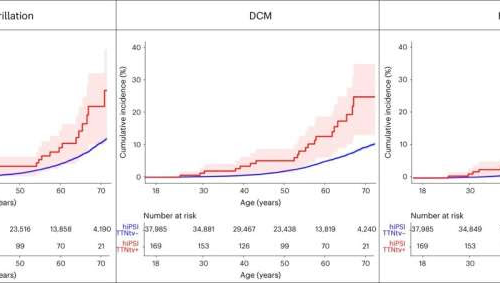A new study reveals a surprising fact: humans are actually spreading more viruses to animals than we receive from them.Edited by Nikhil Pandey Humans pass on more viruses to domestic and wild animals than we catch from them. For years, animals like rats and bats have been blamed for spreading diseases to humans. However, a...
Category: <span>Clinical Practice</span>
Can a cup of tea keep COVID away? Study demonstrates that certain teas inactivate SARS-CoV-2 in saliva
by Jennifer L Reynolds, University of Georgia cup of teaCredit: Pixabay/CC0 Public DomainNew research from the University of Georgia suggests that something as simple as a cup of tea can help in the fight against COVID-19. Tea has been renowned globally for its many health benefits, and Malak Esseili, a virologist with the University of...
Five Keys to Helping Long-COVID Patients Recover
About 7% of US adults report having or having had symptoms of long COVID such as fatigue, heart palpitations and/or dizziness. These are three of the 12 symptoms identified as part of the National Institute of Health’s RECOVER initiative that can be reliably used to classify someone as having long COVID. While there is no...
Focal Therapy for Prostate Cancer: Evidence-Based or Oversold?
Howard Wolinsky In 2013, a prostate-specific antigen (PSA) blood test revealed that Richard LaFrate’s levels had jumped. Previously in a normal range, LaFrate’s PSA was now above 6 ng/mL, indicating an elevated likelihood for prostate cancer. The jazz guitarist from Leesburg, Florida, then 70 years old, underwent a biopsy, which found two Gleason 6 lesions....
New Guidelines: Start PSA Screening Earlier in Black Men
Lowering the recommended age for baseline prostate-specific antigen (PSA) would reduce prostate cancer deaths by about 30% in Black men without significantly increasing the rate of overdiagnosis, according to new screening guidelines from the Prostate Cancer Foundation. Specifically, baseline PSA testing in Black men should begin at age 40-45, sooner than current guidelines recommend, and...
GLP-1s Don’t Appear to Worsen Diabetic Retinopathy
Richard Mark Kirkner SAN FRANCISCO ― A large observational registry study of almost 100,000 eyes has found that the diabetes drug semaglutide, a GLP-1 agonist recently approved for weight loss, does not worsen the progression of potentially vision-threatening diabetic retinopathy in the long term in patients taking the drug. However, the researchers said, the findings...
SGLT2 Inhibitors Protective Against Retinopathy in T2D
TOPLINE:Sodium-glucose cotransporter 2 (SGLT2) inhibitors are associated with a lower risk for sight-threatening retinopathy than other second-line glucose-lowering medications in patients with type 2 diabetes (T2D). METHODOLOGY:Researchers conducted a nationwide cohort study including 3,544,383 patients with newly diagnosed T2D.During the 5-year study period, 159,965 patients were treated with SGLT2 inhibitors, 304,383 received dipeptidyl peptidase-4 (DPP-4)...
Black individuals with a genetic mutation found to have increased risk of developing atrial fibrillation, heart failure
by Anna Jones, University of Alabama at Birmingham This figure depicts the cumulative incidence of the study outcomes stratified by the hiPSI TTNtv carrier status in individuals of African ancestry. The study outcomes include atrial fibrillation, DCM and heart failure. TTNtv carriers and noncarriers have been depicted in red and blue, respectively. Credit: Nature Cardiovascular...
Weight loss caused by common diabetes drug tied to ‘anti-hunger’ molecule in study
by Stanford University Medical Center Metformin 500mg tablets. Credit: public domainAn “anti-hunger” molecule produced after vigorous exercise is responsible for the moderate weight loss caused by the diabetes medication metformin, according to a new study in mice and humans. The molecule, lac-phe, was discovered by Stanford Medicine researchers in 2022. The finding, made jointly by...
Five-minute test during routine GP appointments could prevent stroke
EUROPEAN SOCIETY OF CARDIOLOGY Sophia Antipolis, 18 March 2024: People at risk should be tested for atrial fibrillation every time they attend a health appointment, according to results of the AFFECT-EU project, which is holding its final event today in Brussels, Belgium. Patients at high risk of the disorder, such as those with heart failure...



